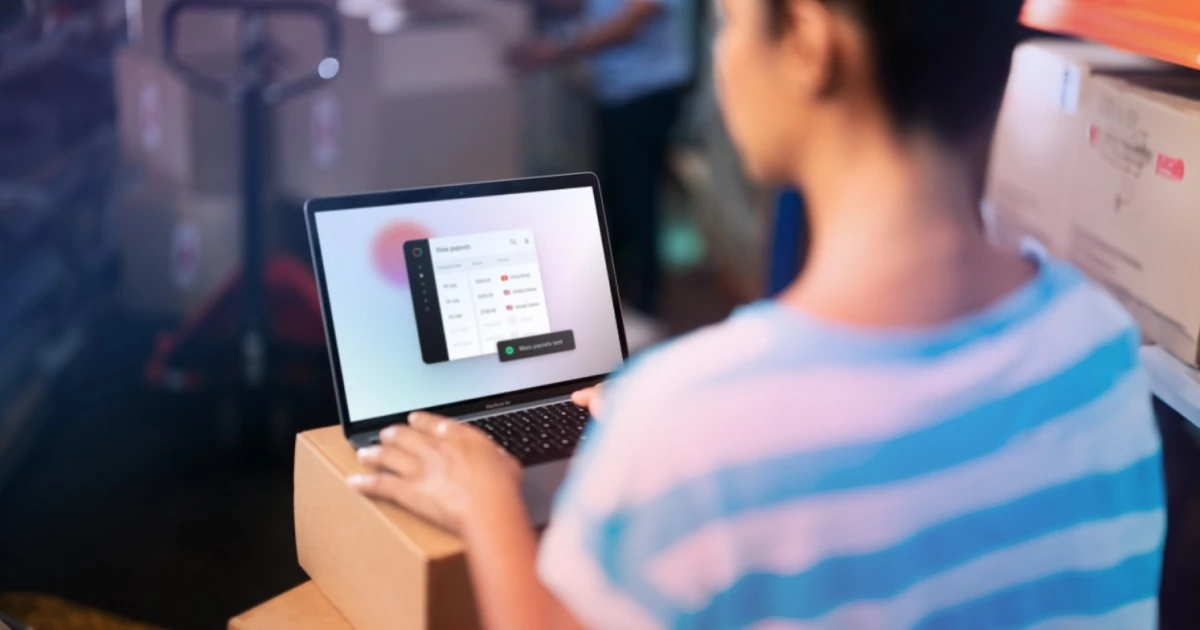Global mass payouts and integrations for marketplaces
For smooth operations and efficient fund transfers, marketplaces rely on integrating global mass payouts solutions. As experts in the cross-border payment industry, we have explored the challenges and best practices for implementing payouts solutions in today’s marketplace landscape, including compliance, currency exchange, payment reconciliation, security, and technical integration.

The modern marketplace landscape
Marketplaces have become an integral part of today’s global economy, revolutionizing the way businesses operate by connecting buyers and sellers across borders. Platforms like Amazon, eBay, Alibaba, and Airbnb dominate the ecommerce landscape, processing millions of transactions daily and handling payments for sellers and service providers across different countries and currencies.
The efficient and seamless transfer of funds is a critical aspect for the growth of marketplaces transactions, and global mass payout integrations play a vital role.
Uncovering global mass payout challenges and best practices
Global mass payouts refer to the process of transferring funds to multiple recipients, across different countries or territories, simultaneously. This type of payout is typically used by marketplaces to facilitate payments to their sellers, affiliates, or service providers. Integrations, on the other hand, involve connecting different systems or platforms to enable smooth data exchange and transaction processing.
In recent years, global mass payouts and integrations have gained significant importance in the world of marketplaces, as they offer numerous benefits and opportunities for growth. However, they also come with their fair share of challenges, which need to be addressed for a successful implementation.
The challenges of global mass payouts
While global mass payouts offer significant advantages for marketplaces, they also pose challenges, including:
Regulatory Compliance: Marketplaces need to comply with different regulations and laws across countries, including anti-money laundering (AML) and know-your-customer (KYC) requirements. Failure to comply with these regulations can result in hefty fines and penalties.
Currency Exchange and Conversion: Global mass payouts often involve transactions in different currencies, which can be complex and time-consuming. Currency exchange rates and conversion fees can impact the overall cost of payouts and directly affect the earnings that sellers and service providers cash in.
Payment Reconciliation: Marketplaces need to reconcile payments made to sellers or service providers with their internal records, which can be challenging when dealing with a large volume of transactions. Discrepancies in payment amounts, currency conversions, or transaction fees can create confusion and disputes.
Payment Security: Transferring large amounts of funds leaves marketplaces vulnerable to fraud and security breaches. This means they need to implement robust security measures to protect against unauthorized access, data breaches, and fraudulent activities.
Technical Integration: Integrating different systems and platforms for global mass payouts can be complex and require expertise in API integration, data mapping, and transaction processing. Marketplaces need to ensure seamless integration to avoid disruptions in payment processing and user experience.
Best practices for implementing global mass payouts
Implementing global mass payouts requires careful planning and execution. Here are some best practices to consider:
Choose a reliable payment service provider: Select a payment service provider with a proven track record in handling global mass payouts. Look for features such as multi-currency support, compliance with local regulations, robust security measures, and excellent customer support.
Understand local regulations and compliance requirements: Each country may have different regulations and compliance requirements for cross-border payments. Familiarize yourself with these regulations and ensure your payout process is compliant.
Implement strong security measures: Protecting sensitive financial information is critical in global mass payouts. Implement strong security measures, such as encryption, multi-factor authentication, and regular security audits, to safeguard against fraud and cybersecurity threats.
Automate payment processes: Automating payment processes can save time, reduce errors, and ensure timely payouts. Use payment automation tools, such as payment gateways, APIs, and accounting software, to streamline the payout process and increase efficiency.
Monitor and reconcile payouts: Regularly monitor and reconcile payouts to ensure accuracy and resolve any discrepancies promptly. Keep records of all payouts and reconcile them with your accounting and financial systems to maintain transparency and accuracy.
Provide excellent customer support: Offer responsive and reliable customer support to address any questions or concerns from payees. Promptly respond to inquiries, provide clear communication, and resolve any issues to maintain trust and satisfaction.
Test and optimize payout processes: Continuously test and optimize your payout processes to identify and resolve any potential bottlenecks or inefficiencies. Regularly review and optimize your integrations, security measures, and payout workflows to ensure smooth and seamless operations.
Conclusion
In today’s global marketplace landscape, efficient and seamless global mass payouts are crucial for marketplaces to ensure smooth operations and provide a positive user experience. Integrations play a key role in automating the payment process, enhancing operational efficiency, and expanding market reach.
However, careful consideration of payment methods, regulatory compliance, currency exchange, integration with the marketplace platform, payment security, and customer support are essential for a successful implementation.
By following best practices and continuously improving the payment process, marketplaces can optimize global mass payouts and drive growth in the competitive global marketplace landscape.
Related resources
Latest articles
-
A guide to starting a business in Estonia as a non-citizen
If you’ve thought about opening a new business somewhere with plenty of government support, expanding your business into the EU, or making it easier to work as a contractor or digital nomad anywhere in the European Economic Area (EEA), you should think about starting a business in Estonia…
-
How to simplify payment operations with Payoneer’s automation feature
Save time, reduce costs, and eliminate errors with Payoneer’s new payment automation feature.
-
How to prevent online payment fraud as an SMB
Prevent online payment fraud by overcoming challenges like phishing, fake accounts, and account takeovers (ATO) with enhanced security features from Payoneer.
-
Amazon Fees & Policy Updates 2024
Amazon regularly makes planned updates to fees and policies that may impact Payoneer customers that sell on Amazon. To keep Payoneer customers informed regarding upcoming and past updates, we’re providing a list of known changes to Amazon fees and Policy updates.
-
How Payoneer’s target exchange rate feature will help you save more on bank withdrawals
Boost savings with Payoneer’s target exchange rate feature.
-
Navigating phishing attacks: A guide to keeping your Payoneer account secure
Keeping your funds safe is our number one priority at Payoneer. While phishing attempts can happen, arming yourself with knowledge is key to keeping your data and money safe














